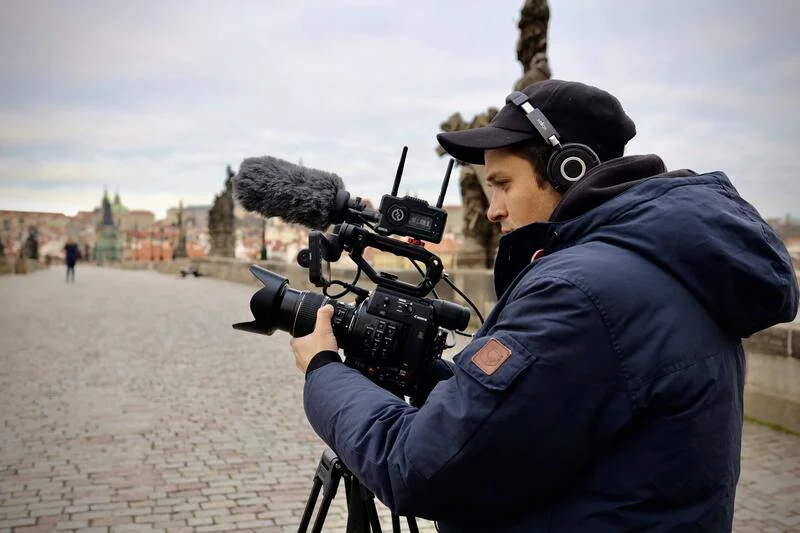On this website, we usually talk about video production in Prague. But this time, we’re going to discuss the most common new filmmaker mistakes.
Well, the truth is, it doesn’t take just skills to be a great filmmaker.
It also takes mistakes. A lot of them, actually.
But of course, these are mistakes that we can all learn from.
For the years I’ve been doing filmmaking, I’ve noticed a lot of common and avoidable mistakes from newer filmmakers. So today, we’ll dive into those in hopes that if you are newer to this, it may help you avoid those common pitfalls.
Below are the most common things I observed that new videographers make mistakes on. Let’s tackle first the technical side of things, shall we?
#1 Filming in 30 frames per second (or even higher!)

Alright. I get it, I’ve done it myself. I’m guilty of that.
But you want to stick with 24 FPS going forward. Why? Because this will provide you with the most cinematic look there is.
Some new filmmakers won’t even realize that there is a difference in the look between 24, 30, 40, 50, and 60. Some would even think, that the higher the number is, the better.
But believe me, these numbers are very different. And 24 FPS is the go-to if you really want something cinematic.
#2 Using Way Too High of an ISO
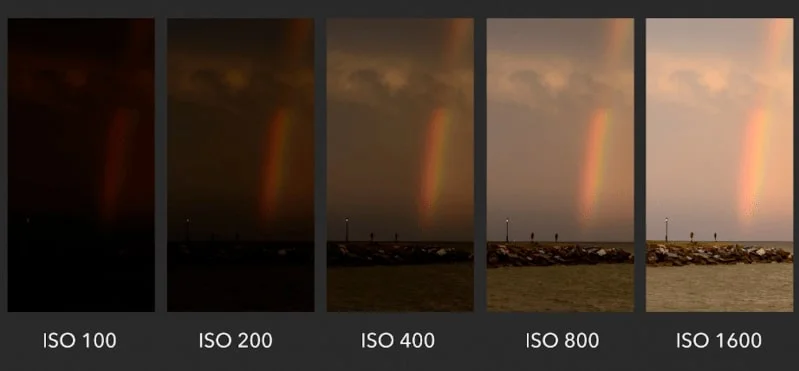
New filmmakers would usually argue that their footage doesn’t look like the other person’s footage, even if they are using the same camera. The reason for that is because they are using way too high of an ISO, when they don’t really need to.
It’s always good to note that the only time you want to boost your ISO is if there’s literally not enough light. And in addition to that, there’s already a base ISO you can use.
ISOs could vary for every camera. But it is suggested to stick to the base as it’s the best ISO for your certain camera type.
#3 Just Sticking Your Camera into ‘Auto’ Settings
This is a big new filmmaker mistake that any newbie should take note of. This is also a mistake even in photographers taking corporate headshots.
Not only will it make you a bad videographer because you don’t actually know how to control your camera, but you’re also giving away a lot of the creative choices by just sticking to ‘Auto’.
The F Stop is probably one of the most creative choices that you can make with your filming. If you stick to auto, you’ll never learn what F Stop you’re going to film at. And you’re going to miss out a lot.
If you’re interested to learn what it is, below is the easiest video explanation.
Bottom line: If you want to become a great filmmaker, learn how to use manual control.
#4 Making It Too Dark or Too Bright

This is also known as overexposing or underexposing. If you do this, your footage is not going to look good when you go to post and start color grading. It’s never a good idea to lose details in the highlights or lose details in the shadows.
To avoid struggling, it’s best to use a histogram because you can’t always just trust your eyes. If everything is over to the left side on your histogram, that means you’re under-exposing it. And if everything is over to the right on your histogram, that means you’re over-exposing. You would want it to be in the middle.
#5 Not Color Grading Your Footage
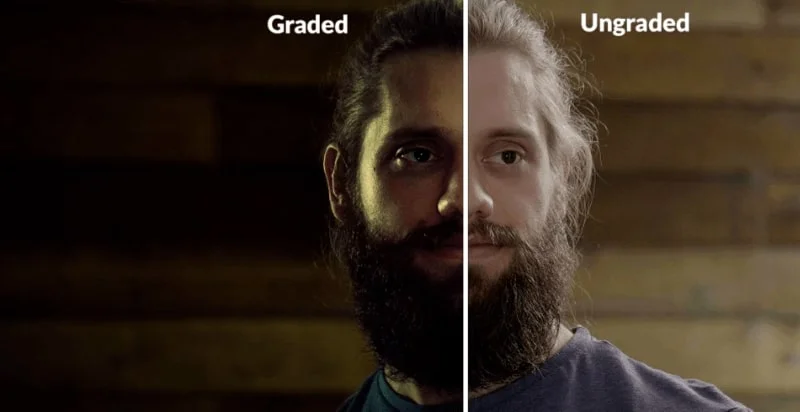
Footage that is filmed nicely but is not color graded is definitely missing out on a massive step. Always keep in mind that you have to color grade. Because to be honest, it will look like junk if you don’t.
It’s kind of like the counterpart of building a house and not putting any furniture in it or, you get the newest dessert in town, but it’s flavorless.
Just take the time to color grade your footage. It’s going to look way better and it’s going to make you more unique, too.
#6 Not Using Lights at All
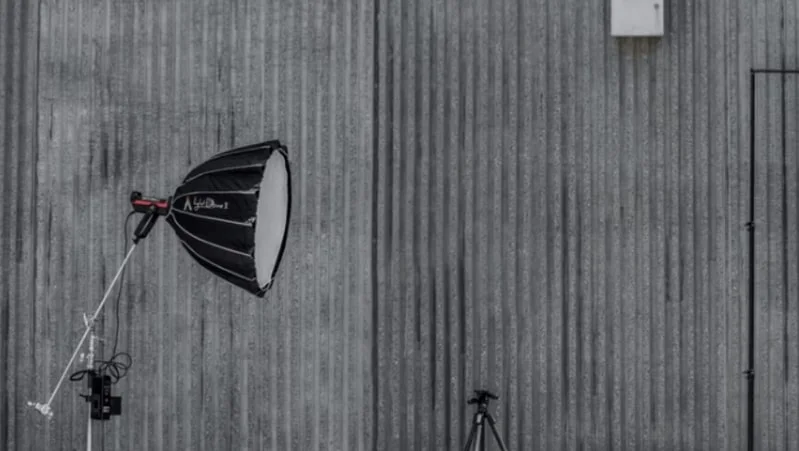
This is a big no-no as well.
As a new filmmaker, I understand that there are a lot of things that you need to buy and lights are not very much one of the priorities. But please know that this is a very important aspect of filmmaking.
If you don’t have the budget to get lights as of yet, then there is always natural light that is available for you. For sure, there’s always some sort of sunlight source around you that you can utilize whether it’s a window or just a light going into your house.
Just look around you. Find out what’s the brightest spot you have there and then just use that. Make your footage look way better than just filming it in a dark corner.
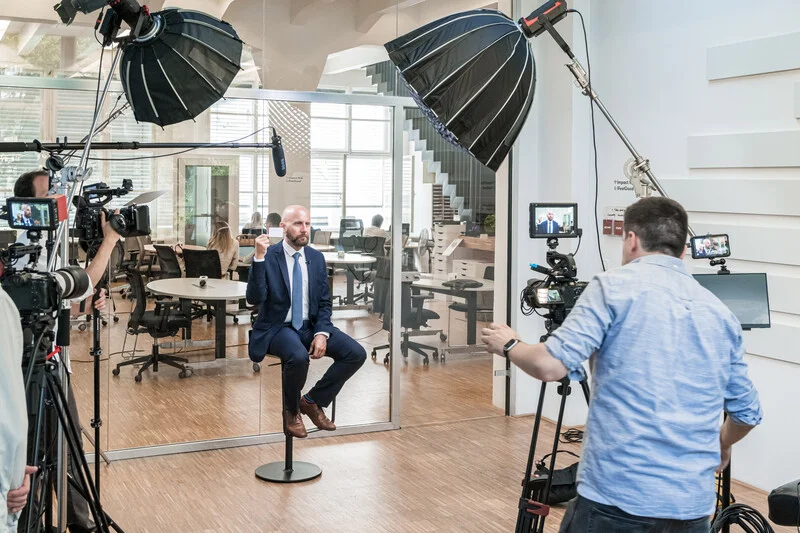
We also recommend reading our newest similar blog post “Two Camera Corporate Interview Setup: Our Cameras and Lighting Setup”
#7 Not Investing in a Microphone
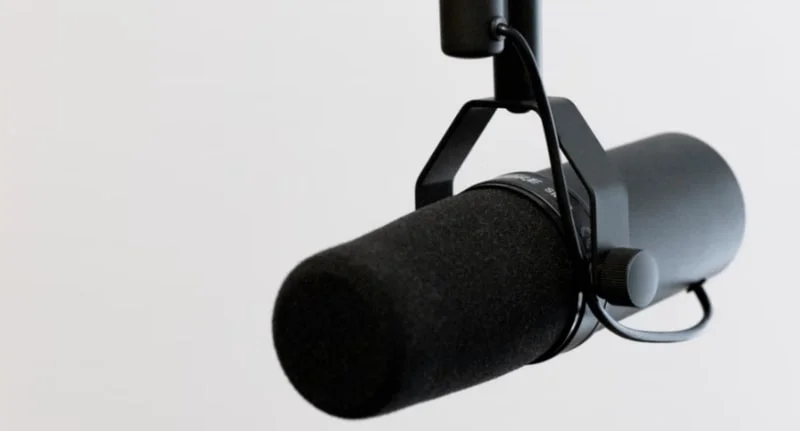
You actually should invest in a microphone in your early stage of being a videographer as it is going to do a lot for your videos.
Of course, who would want their videos to be peaking? Or maybe way too low? These are just some of the common problems you may encounter if you did not invest in a good microphone earlier.
You also want to be hitting -12 DB for your audio while you’re recording for the best output.
#8 Having the ‘Classic’ Shaky Footage

This is something all new filmmakers do. They would just pick up the camera, put it in video mode, and they just start filming without even thinking about how shaky their footage is.
Some would even use it as an excuse such as, “I’m trying to make it as raw as possible.” Yes, it’s completely okay if you want to believe it that way. There is also always a time and place for that.
But as you learn more about filmmaking, you should also slowly adjust to better filming techniques. And most of the time, a new filmmaker isn’t using it for that ‘raw’ purpose anyway.
Invest in proper equipment such as tripods or basically anything to stabilize your footage. It will make a whole lot different, and you will be more satisfied with your work.
#9 Just Basically Adding a Song after Filming
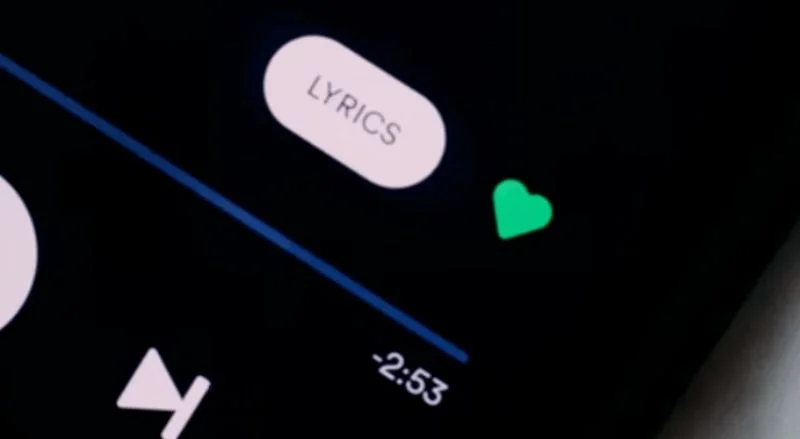
New filmmakers have the tendency to just slap the song they like in the footage that they are working on. It would look like there is nothing wrong with it, plus the fact that they liked it is just perfect.
But there is more to just adding your favorite song in filmmaking. You would actually need to know the song that fits your footage and edit to that song as well.
With that, it’s going to be way more interesting and more compelling. Overall, it would provide you with a better outcome.
#10 Not Putting Enough Effort into the Story

When you’re a beginner, you can get too caught up with your camera, its settings, and just basically everything else going on with the setup that you tend to put less effort into the story itself. This is a new filmmaker mistake you should be careful with.
Always remember that the story is very important. Even in filming corporate events, having a story is essential.
Besides all the technical stuff, it is the story that the viewers are looking for. It is also the story that makes viewers leave or stay. Story is King, as they say. And it’s certainly true.
Always make sure to plan out your story beforehand. Make sure there’s something to your video that you can offer more than just ‘being nice’.
And that’s about it for the technical side of getting into the filmmaking industry. Are you guilty of any of these new filmmaker mistakes? If you are, then it’s completely fine! We all go there. It’s all part of the learning process.
This time, let’s plunge into actual filmmaking itself. What do you think are the common pitfalls of the newbies?
Let’s get it rolling.
#11 Always Going with Your First Idea

If you want to stand out from your competitors and be as unique as possible, then the best route is to never, ever, go with your first idea.
Yup, because usually, the first idea that comes into your head is also the first one that comes to most of your competitors’ brains. I can guarantee that at least one hundred other people had that idea too.
So what should you do? Don’t go with the first thing that jumps into your head! Always think differently. Once you have your first idea, you can tell yourself that it’s probably something the audience is going to have on their minds as well.
By taking a left turn, you would be able to surprise your viewership with what they thought would happen. It’ll make your work unexpected and non-generic. And yes, it will draw more audience, too.
#12 Having Audio Coming from One Channel Alone
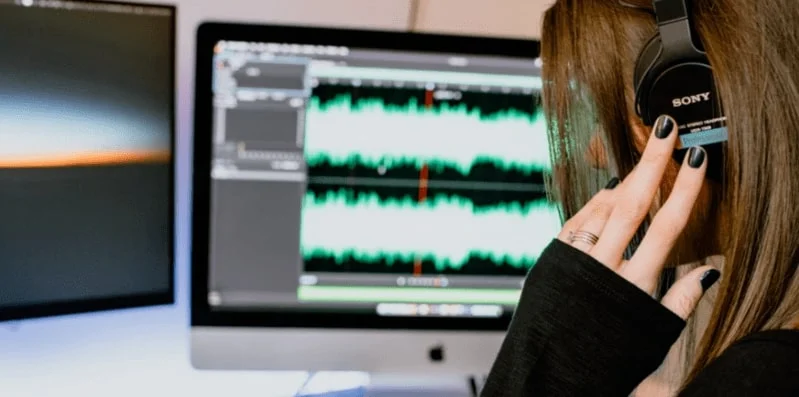
This one has always been a mistake, even at the pro-level. This can happen depending on what you’re using to record.
DSLRs, for instance, have an insanely easy fix for this. You would just have to use a fill effect. If the audio is from the left channel, you just fill right with the left and your work is good to go, it’s one!
There is a huge number of filmmakers doing this mistake so it’s always good to be out of that massive number as early as possible. Make sure to regularly check your sound with headphones before you call it final for reasons like this, too.
#13 Not Committing to the Film’s Moment
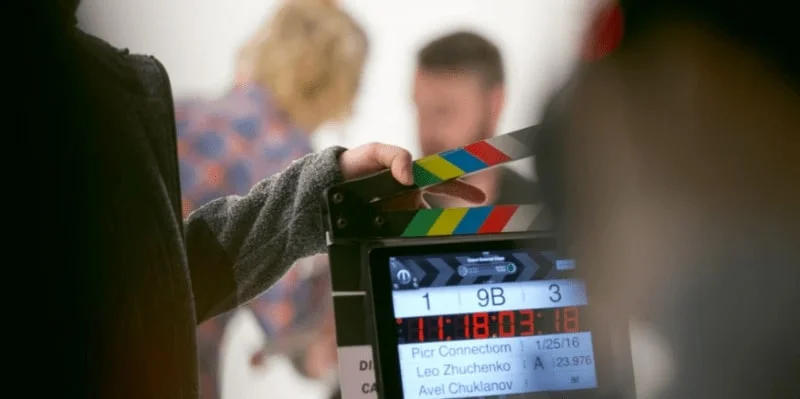
This mostly happens in action scenes. For example, there is a fight scene where the character is ‘clearly’ not giving the realistic punches or kicks needed. It totally destroys any chances of your audience engaging in that experience that you intended.
Of course, you always need protection and safety to be the most important thing while filming, but you also need it to look natural as well.
Even a normal viewer, without any filmmaking or acting experience, would know and feel if the actor is not fully committed to the scene’s moment.
As a director, you would need to coach them correctly. That is your main job. You have to make them stay in their characters. Give them things to think about to keep the character and the scene alive.
Always remember that the moment your actor disconnects from the moment, your audience will, too.

We also recommend reading our blog post “These Movies Shot In Prague Will Amaze You”
#14 Not Putting Attention to Transitions
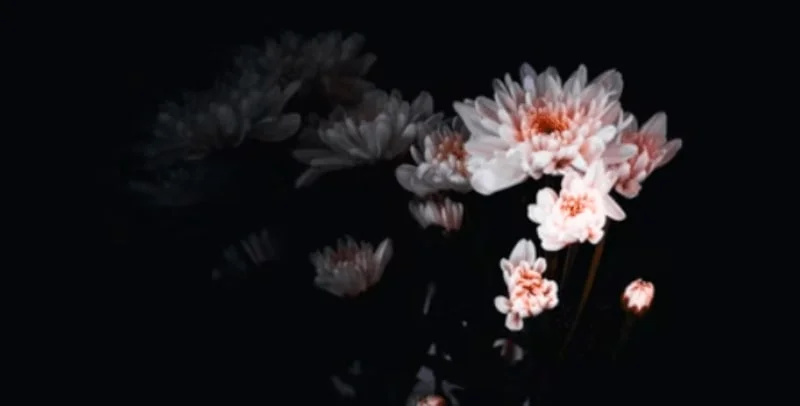
This is a very common mistake too.
It’s good to always know how you would want to move the audience from one space to another. From one scene to another. From one emotion to another.
Oftentimes, a new filmmaker would just cut the scene abruptly, or maybe just use a fade effect. This means he or she didn’t think beforehand or during the shoot about how to transition the scenes smoothly.
#15 Picking the Wrong Music
These days, it’s very easy to just get any music for free, or cheap. But aside from the quality that could be bad, picking the wrong music could also give you funny results, even though it is not something you intended.
Rule of thumb: If you take the music to a ten when the emotion of the scene really needed a five, you’re going to end up with some comical results.
If you want an example of how a piece of wrong music could totally change the film’s overall atmosphere, then watch these, and try your best not to laugh.
#16 Telling the Story, Instead of Showing It

Have you ever heard of, “Show, don’t tell”? If you do, then this is the perfect time for you to practice doing that.
So, why can’t we just tell?
Well, if you keep on telling, you will end up with a very boring dialogue that no human would ever say. Both characters already know this information. So why would they say it out loud?
Example of Filmmaker Mistakes on ‘Tell’:
“Daniel, we went biking yesterday, that’s why our legs are sore.
“You’re right, Theresa. We ate sandwiches after biking as well. They were yummy. We both liked it.”
Like come on, does this sound human at all? I don’t think so. Keep the fire burning by being a little more creative on ‘showing’.
#17 Characters Doing Stuff That Aren’t Related to the Film

Fillers.
I have seen so many new filmmakers’ short films that start with the character waking up, turning off their alarm, brushing their teeth, taking a shower, making breakfast, making toast, popping out of the toaster, and so on.
To be honest, anyone watching your film would be turned off before that collection of ordinary shots is even over. There’s nothing captivating about it, and it’s been done more times than almost anything on this list.
If you have a story-driven reason that an individual needs to show a mundane life or a repetitive one, make it compelling. Do something distinct with it. Let us know why we need to see it.
#18 Having an Awkward Pacing

This is very common in the old films, but this shouldn’t be done anymore nowadays.
It’s no doubt that nailing your pacing should be one of the items on your checklist. It could be challenging to notice at the beginning, but it gets easier over time.
This part of filmmaking is indeed a blind side when you’re just starting out. You won’t even notice that your footage has too much time in between responses and that the conversations feel unnatural. Or you won’t realize that your dialogue cuts look robotic.
But again, this can be improved over time.
#19 Poor Casting

As much as we would like to help your friends or people you know, it’s always a bad idea to just cast them because you know them. The casting choice goes a long way to making any film successful. Remember that.
New filmmakers would mostly cast the wrong characters for some roles, and it could make or break the film. Please note that you cannot just give the role to anyone. You have to make the proper choice, or the film would be a mess.
If you want to be successful in the area of filmmaking, always be strict when it comes to casting. Try not to fall into this filmmaker’s mistake trap. You may also check our these Bollywood Films That Were Shot in Europe, and see how their casts fit like a glove.
#20 And the last new filmmaker mistake on the list is… Having Too Much of Everything!
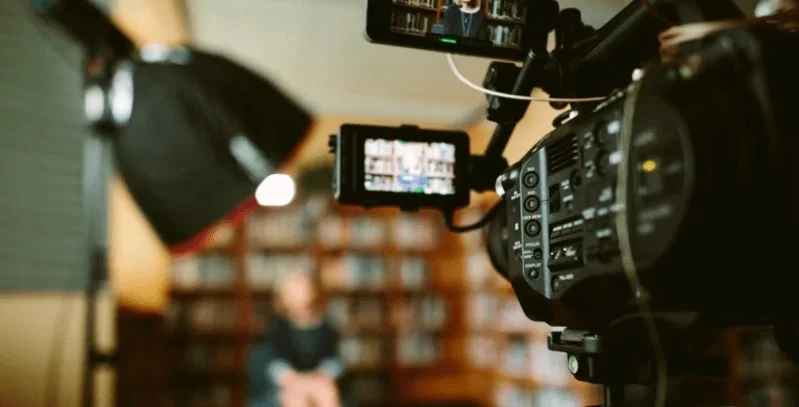
Of course, we’ll have to end this list with a proper balance of everything.
Too many insert shots are like zooming in on your camera to highlight something. It’s good but when it is overdone, it kills a film.
Too much talking destroys a film, too. Too many pauses, too much lighting, too much music, and so on.
Make sure your film is balanced when it comes to these aspects because if you tend to overdo any of these, it could reduce your film’s overall awesomeness.
We also recommend reading Best and Worst Things To Do in Prague in December | Czech Republic in Winter
Final Thoughts

If you want to be a successful filmmaker or videographer in the future, then you should take note of these items to somehow shorten your learning curve. Although at some point, you may still encounter these as part of your filmmaking journey, and that’s completely fine!
We all go there. We all started with nothing. I’ve probably done every single one of these, so don’t be discouraged if you’ve done these too.
Just see to it to always pay attention to what you’re doing. Also, be open to learning different things every day. Accept the mistakes and learn from them. Because that’s how you’re going to grow in this profession.
Hopefully, this guide had helped you recognize these common pitfalls in your own work. I guess the key takeaway we’d like you to get after reading this article is:
Never make these new filmmaker mistakes hinder you from being the best videographer you could be!

